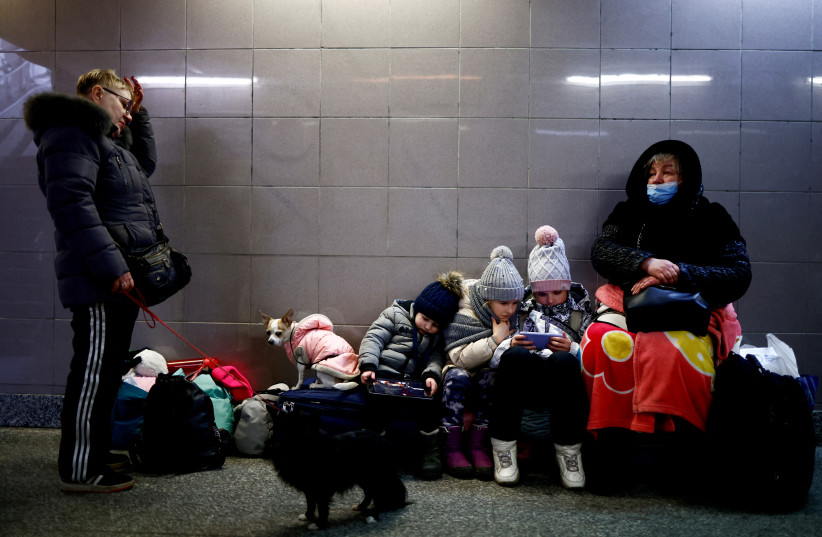In 1993, I came to Poland to learn about the deaths of the Jewish people. I spent nine days honoring the memories of the souls of our people who were murdered at the hands of the Nazis.
I was 16 years old and I was on a United Synagogue Youth trip to Poland, which culminated in a life-changing visit to Israel. I have carried those memories with me for almost thirty years and they were packed in my proverbial suitcase when I boarded a plane this past Saturday night with 17 other rabbis from New York, on a UJA-sponsored rabbinic mission.
We stopped everything we were doing at home to come to Poland to see the devastation on the ground at the border with Ukraine, and to bring medical supplies and ordinary items for immediate use.
We came to see the work of various Jewish (and secular) organizations, such as the JCC in Warsaw and Krakow, the Joint Distribution Committee, as well as Natan, under the framework of our relationship with the UJA Federation of NY, in order to amplify the message of how we might be able to help raise awareness and funds to make a difference back home.
We knew that we were going to see sadness, despair and grief on the faces of Ukrainians, Jew and non-Jew alike, who just want to be able to live their lives.

Yet, because of the brutality of Russian President Vladimir Putin, they have been forced to flee their homes, and in most cases, separated from their loved ones. We have heard the stories of the men who are still in Ukraine. Men who are continuing to live and fight for their country and their dignity. Men who have been separated from their families, as we witnessed the exodus of refugee women and children.
However, there is a difference between my two visits. In 1993, when I came to Poland, the photos that I took were pictures of suitcases, shoes and eyeglasses, of crematoria and broken synagogues. All remnants of our people whose lives had been ended.
But this week, the photos were different; they weren’t photos of the past, they weren’t photos of the dead, they were photos of the chance for life. I took photos of children, diapers, toys and clothing, people preparing to make aliyah, women, children, and people young and old.
As we drove through the Polish countryside, visiting the makeshift absorption centers for refugees, the border crossing, the train station, and even a hotel in Warsaw which has been taken over by the Jewish Agency, who has created a space for Ukrainian Jews (and descendants of those Righteous Among the Nations), what I saw and felt was the shadow of those who had died at the hands of the Nazis being bridged into new images.
The images are of Jews who can organize, help, rescue and save. No longer at the whim of what others will do to our people, this time, our people were at the front lines, helping everyone from any background who needed a hot cup of coffee, a bed to sleep in or a phone to use.
As we drove through the Polish countryside we felt the presence of our people who hid in these forests, whose time was cut short and whose stories were not told.
Today, we hold on to these stories as new ones are being written. Stories of people who, by their will, determination, partnership and power of various Jewish organizations, will be given a chance to live, as they bring with them the footsteps of their ancestors, as they create a new story and a new path ahead.
In 1993, I learned about those who had died. And this week I met those who will live. Am Yisrael Chai (the nation of Israel lives). Truer words have never been written.
The writer is the rabbi at Sutton Place Synagogue, a Conservative synagogue in Midtown Manhattan.
